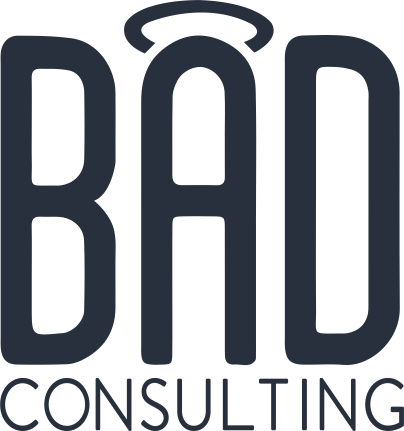It’s a fine line between collaborating and micromanaging. And so often clients have no idea which side of the line they are on. But if you say something, they are very likely to say they are just trying to collaborate. So how do you work with a social media consultant if you don’t have any idea of the difference between collaborating and micromanaging?
Let’s take a look at some of the differences and how to make your relationship a more positive experience.
The difference between collaborating and micromanaging is the feeling
I used to have a client who had five people who were involved in content approval. They would debate every word and even the comments. Do you know how I felt after going through the weekly content approval process? DEFEATED. I felt like my work was absolute crap and like I couldn’t do anything right. This is a big sign of micromanaging.
If you’re consistently debating where a period goes, then that’s a big problem. Others including needing approval to reply to comments, looking at analytics in real time, expecting constant instantaneous responses and basically anything that shows a lack of trust in your consultant’s expertise.
It’s something I’d love to give a complete definition of, but that’s near impossible because it looks different in every relationship where it shows up.
Clear expectations of everyone’s roles
The first step to stop yourself from micromanaging is to have a conversation at the beginning. Define the different roles. What does it look like to be a client in this relationship? What does it look like to be a consultant? At what points will you step in? And when is better for you to back off? Talk it all through as exhaustively as possible. Then write down the major points, so you each have something to point to when problems arise.
Schedule communication
I love clients who are super active participants in their social media. I’ll talk to you as much as you want about it. But having scheduled communication makes sure that our communication is effective.
Does that mean that you can’t talk to me during those non-scheduled times? Absolutely not. As I need to know things, send it over. What it does mean is that you save non-emergency information for our scheduled meetings when we can deal with them as a whole and get them into our editorial calendar in a more thoughtful way. And the cool thing is that as we work together, the emergency information tends to be more and more rare as we look further ahead and create plans.
What do those plans create? Peace. I’ve found a lot of clients have been more comfortable handing over the reigns as we deal with items ahead of time. It gives me the opportunity to ask questions and get us on the same page. Getting me that kind of information last minute in drips and drops creates chaos and makes a client feel like they have to micromanage everything that happens.
Choose your words carefully
The words that have hurt me the most in a client-consultant relationship have always been the ones that are off-the-cuff and given with little thought. They never came from a place of respect.
Every communication with your consultant should come with respect. Start with thinking they have the best of intentions and let the words flow from there. I’ve found that if everyone in a conversation starts with thinking everyone is coming from a good place, more can be accomplished and everyone leaves the conversation feeling better. All it takes is a little preparation with a mindset shift.
And how does that help with micromanaging? That mindset will drift into everything. It will naturally give you more confidence in your consultant and give them more confidence as well. You will be able to take a step back and they will be able take a few more risks. Risks are where social media goes from good to great.
When it’s not micromanaging
Does this mean that you should just let a consultant run wild? Absolutely not. Some of my worst clients have say back, wanting nothing to do with social media. I ended up not getting regular updates on the organization and chasing after engagement because I had no business goals to pursue. Do you know what happens when a social media consultant chases after engagement? That prioritizes the audience’s needs over the organization’s, and business doesn’t happen in that environment. So there’s not really a point to social media in that atmosphere.
Give your consultant clear expectations, communication and respect. If they don’t do the same, then it’s time to start reigning them in. First with a conversation. Then with a warning they’re in breach. And then with canceling the contract. Of course, every situation is different, so it might make more sense to move faster or slower than that.
But also make sure you leave room for failure. The best social media doesn’t succeed every single time. In fact, the times you fail can tell you more about your audience than the times you succeed. As long as you see your consultant is taking every post as an experiment and taking notes on the reasons for failure so they can do better next time, keep going. Something incredible is about to happen.
Have you ever micromanaged? How did you stop yourself?

